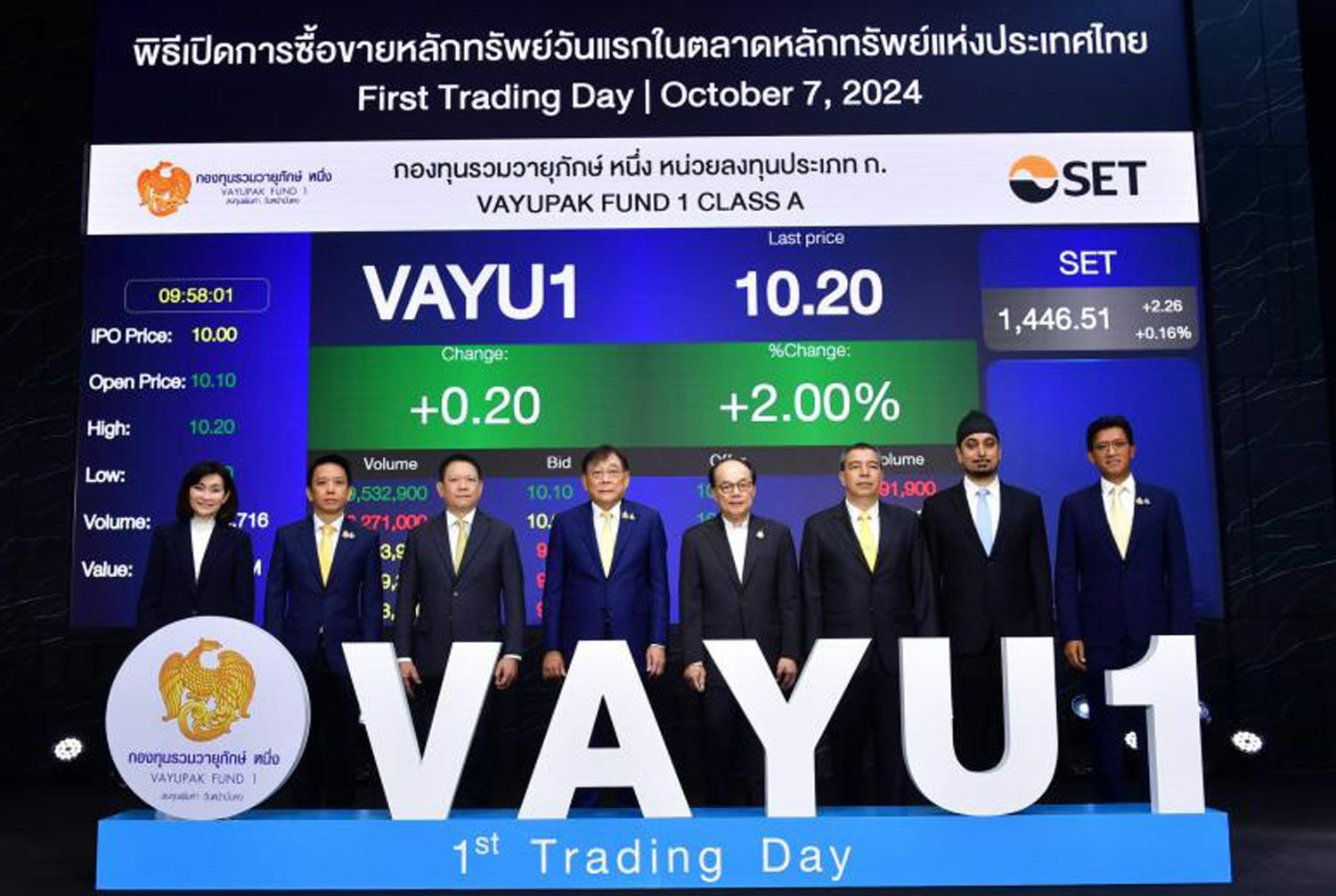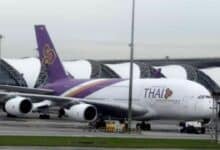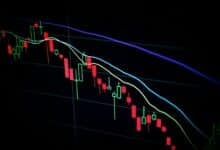Stocking up: Thai market on a roll with Vayupak, ESG fund boost

Thai stocks are poised for continued growth in the fourth quarter, driven by incremental investments in the state-run Vayupak Fund and tax-saving Thai ESG funds, according to the Stock Exchange of Thailand (SET).
SET President Asadej Kongsiri revealed that retail investor participation has surged, now accounting for 52% of trades, up from just under 50% in the preceding months.
An increasing number of younger investors are showing interest in the Thai stock market. Over 2,000 new investment accounts were opened during SET roadshows in Chiang Mai and Khon Kaen in the third quarter, said Asadej.
“The SET remains committed to broadening the retail investor base, enhancing financial literacy, and facilitating easier trading for both institutional and foreign investors.”
Soraphol Tulayasathien, SET Senior Executive Vice-President, highlighted that the Thai index reached its highest point in 22 months in September. This surge was bolstered by the Federal Reserve’s interest rate cut, stabilising domestic politics, and stringent trading control measures aimed at restoring market confidence, said Soraphol.
“The Thai index rose to a 22-month high last month.”
Thai stocks
Additional growth factors include the recovery of exports, governmental stimulus measures, the launch of new Vayupak Fund units, and revised investment conditions for Thai ESG funds, Soraphol added.
In September, the Fed reduced its policy rate by 50 basis points to 4.75 to 5%, marking the first cut in over four years. This move was intended to strike a balance between employment risks and inflation targets.
Historically, rate cuts by the Fed have bolstered emerging market equities. Recent foreign capital inflows into Southeast Asian markets led to rallies in most regional stocks in September, with Thailand, the Philippines, and Singapore leading the trend.
However, Soraphol warned that a strong baht could negatively impact future earnings forecasts for export and tourism stocks.
At the close of September, the SET index stood at 1,448.83 points, a 6.6% increase from the previous month, representing the highest gain since August 2021. The benchmark index also rose 2.3% from the end of 2023.
The average daily trading value on the SET and Market for Alternative Investment rose by 26.4% year-on-year in September and 35.8% from the preceding month to 62.5 billion baht (US$1.94 billion). For the first nine months of 2024, the average daily trading value was 46.5 billion baht (US$1.4 billion).
SET index
Over the nine months to September, industry groups that outperformed the SET index included technology, consumer products, and agri-business and food industries.
The SET’s forward price-to-earnings (P/E) ratio was 15.8 times at the end of September, higher than the average of Asian bourses at 13 times. The historical P/E ratio stood at 17.5 times, surpassing the Asian average of 15.6 times.
The SET’s dividend yield ratio is 3.28%, above the average of Asian stock markets at 3.04%, reported Bangkok Post.
Trading volume on the Thailand Futures Exchange averaged 707,472 contracts last month, a 41.9% increase from the previous month, driven by higher trading volumes of SET50 Index Futures and Single Stock Futures. However, for the first nine months, daily trading volume dropped 13.5% year-on-year to 474,728 contracts, mainly due to a decline in trading volumes of Single Stock Futures and SET50 Index Futures.
Latest Thailand News
Follow The Thaiger on Google News:


























